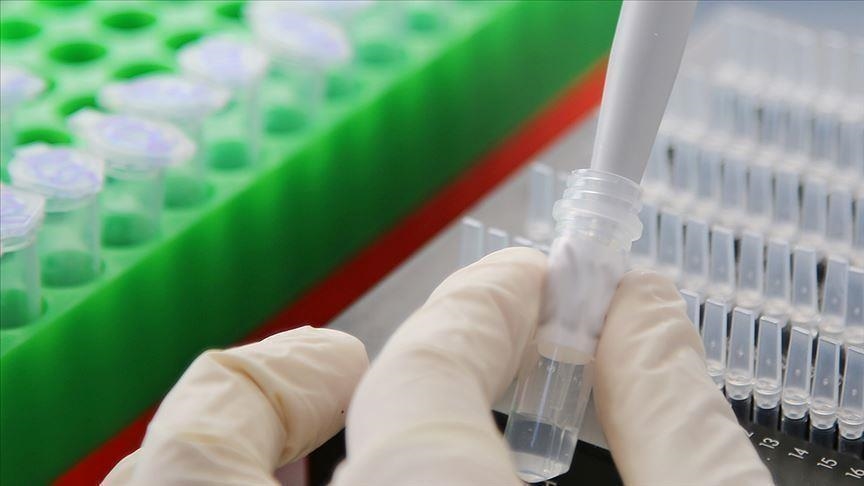World nears 'politically feasible' pandemic accord, but funding remains weak link: Expert
As WHO member states consider adopting a new pandemic treaty, final draft reflects major compromises and equity gains, while concerns over financing remain

- WHO member states approved resolution backing accord Monday, setting stage for final vote on Tuesday
GENEVA
As global health leaders gather this week in Geneva for the World Health Assembly (WHA), member states of the World Health Organization (WHO) are poised to take a decisive step toward stronger global pandemic preparedness: adopting the long-awaited pandemic accord.
After more than three years of intense negotiations, countries finalized a draft of the treaty on April 16 -- a milestone many hope will lead to a more equitable and coordinated international response to future health emergencies.
Described by WHO leadership as a moment of "joy, triumph, relief, and exhaustion," the draft agreement is now under formal discussion. If adopted, it will mark the first legally binding international instrument focused specifically on pandemic prevention, preparedness, and response.
On the first day of the 78th World Health Assembly, the member states approved a resolution backing the accord on Monday, setting the stage for a final vote on Tuesday.
The treaty emerged from the lessons of COVID-19, aiming to address global failures in collaboration, transparency, and equity. It lays out new legal obligations for countries to invest in prevention efforts, strengthen national health systems, protect healthcare workers, and improve access to tools like vaccines, diagnostics, and treatments.
'Solid package that will make world better off'
Dr. Suerie Moon, the co-director of the Global Health Centre and an expert on pandemic governance, told Anadolu that the draft represents a careful balance of competing priorities.
"The final draft reflects tough negotiations to find consensus on a very wide range of issues," she said. "At the end of the day, there is something in the treaty for every country -- that is, every country got something that will be of benefit, and every country also had to compromise and give up on some of its wishlist."
Moon said she believes the agreement will ultimately make countries "safer and better prepared" for future crises. Among the key areas of progress, she pointed to commitments on upstream prevention -- including measures to reduce the risk of zoonotic spillovers -- as well as strengthened obligations for national preparedness, health worker protection, and health system investment. These areas, she noted, are relatively "novel" for a legally binding treaty.
The agreement also includes forward-looking provisions to improve the availability of vaccines, diagnostics, and treatments through more inclusive research and development systems and resilient supply chains, she said. These are codified in several articles of the treaty that focus on equity -- a theme that has been "the highest profile theme" throughout the whole negotiation process.
Moon said the treaty's approach to equity -- particularly in accessing vaccines, tests, and treatments -- stands out. "Equity has been the highest profile theme throughout" the whole negotiations, she said. "That is reflected in many provisions in the text, such as Article 9 on (research and development) R&D, Article 12 on pathogen access and benefit sharing, Article 13 on supply chains."
While applauding the inclusion of equity-focused articles, she noted that some measures could have gone further. "Not every measure for equity is as strong as it should be," she said. "Clearer commitments on technology transfer or financing would have made for a more robust system. But what is there is what was politically feasible, and overall, it is a solid package that will make the world better off."
Countries can act before formal ratification
The path forward hinges on what happens at the WHA. If adopted, the treaty will still require countries to sign and ratify it to enter into force. "First, member states have to finish the job by negotiating an Annex on pathogen access and benefit sharing. Once that Annex is agreed, hopefully within one or two years, the treaty can open for signature and ratification," she said.
In the meantime, countries are encouraged to begin voluntary implementation. "There is no reason why countries cannot start implementing treaty provisions today, of their own free will," Moon said. "The existence of internationally-agreed norms on how we all should prepare for pandemics exert a force of their own, and I hope we will see early action."
According to the expert, in the longer term, accountability measures will be key to monitoring how well countries are living up to their commitments.
Still, one major concern hangs over the treaty’s future: financing.
"Financing will be a potential Achilles heel," Moon warned. "It was never likely that countries would agree to legally binding commitments to provide international financial aid in the treaty, as this is unprecedented. But countries did make legally binding commitments to maintain or increase domestic investment in national preparedness, and this is an important obligation."
Yet for some countries, especially those with limited resources, international funding will remain essential. "Given recent cuts in development aid, it is increasingly difficult to mobilize," she said, and added: "This is an issue we need to continue to work on."
Anadolu Agency website contains only a portion of the news stories offered to subscribers in the AA News Broadcasting System (HAS), and in summarized form. Please contact us for subscription options.






